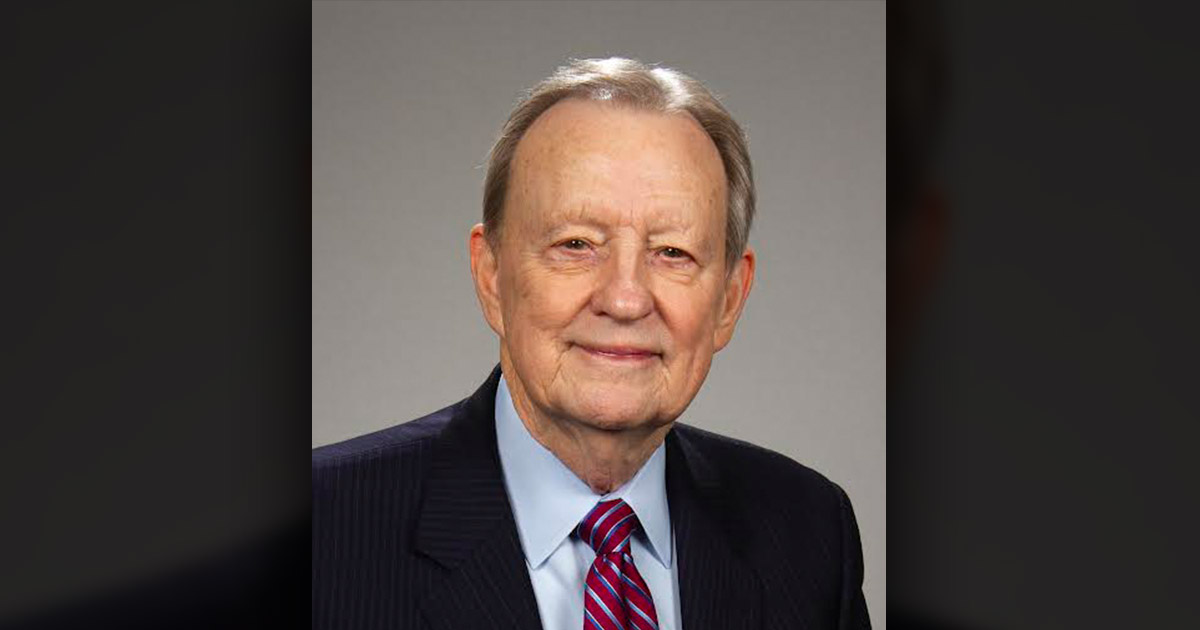Chancellor Emeritus Anderson Inducted into National 4-H Hall of Fame
Dr. Joel Anderson, chancellor emeritus of the University of Arkansas at Little Rock, has been inducted into the National 4-H Hall of Fame for his lifetime achievement and contributions to 4-H.
“I was thrilled by the news but then thought, ‘National 4-H Hall of Fame? No, there have got to be others much more deserving,’” Anderson said. “Then memories of all my great experiences as a 4-H’er started moving through my head. It really pleases me that, 60 years after I was a 4-H’er, this outstanding youth development program is still going strong in Arkansas and across the country.”
Nominated by the University of Arkansas Extension/4-H, Anderson was one of 16 people inducted during the Oct. 7 ceremony at the Kellogg Conference Hotel at Gallaudet University, Washington D.C. They were honored for their exceptional leadership at the local, state, national, and international levels.
Honorees were presented with a National 4-H Hall of Fame medallion, plaque, and memory book during the ceremony. The National 4-H Hall of Fame was established in 2002 as part of the Centennial Project of the National Association of Extension 4-H Agents in partnership with National 4-H Council and 4-H National Headquarters of the National Institute of Food and Agriculture, USDA.
“We are proud to honor and recognize the outstanding individuals who are the Class of 2022 Laureates for the National 4-H Hall of Fame,” said Pamela Van Horn, chair of the National 4-H Hall of Fame. “These individuals have touched the lives of many people, from 4-H staff and colleagues to thousands of 4-H volunteers and members throughout the nation.”
His journey from a graduating senior in a class of 25 at Swifton High School in Arkansas to chancellor emeritus of UA Little Rock has had a running theme: appreciation for and support of Arkansas 4-H.
He fondly recalls his first 4-H project. A fifth grader, he wanted to raise a hog for the county livestock show, so his father made a bargain with him. His father would buy a young pig for him to raise, but after the show, the animal would become meat for the family. The Hampshire shoat young Anderson fed and raised won first place in his division in the county show and was reserve grand champion overall. Show organizers encouraged him to take his champion hog to the Mid-South competition in Memphis, where he could then sell it for a good price. Anderson was all for it, but his father said, “No, we made a bargain.”
From that first 4-H learning experience through numerous projects and many local, county, and state 4-H activities, Anderson topped off his 4-H years as Arkansas State 4-H Club president and as National 4-H Achievement Winner. He joined 4-H when he was young and credits his involvement as the reason he was given many opportunities at a young age to learn and grow.

“As I grew up on a small farm in rural northeast Arkansas, 4-H was of tremendous benefit to me,” Anderson said. “There were local projects and meetings. Thanks to wonderful adult volunteers, members of our club also got to participate in county and state meetings and competitions. Then for those of us lucky enough to win them, the two capstone events were national meetings in Chicago and Washington, D.C. It was 4-H that first took me to those two cities for what were truly eye-opening experiences for me.”
Anderson served more than a decade as a member, then chair, of the Arkansas 4-H Foundation Board, which owns and oversees the C. A. Vines Arkansas 4-H Center and also raises support for 4-H awards. He and his wife Ann helped to establish and provide financial support for the Arkansas 4-H Governor’s Award, a scholarship which recognizes Arkansas 4-H members who have fulfilled an extensive list of 4-H accomplishments as well as interviews before a board of judges. In addition to receiving scholarships, all finalists are then treated to lunch with the governor and first lady at the Governor’s Mansion.
Anderson became chancellor of UA Little Rock in 2003, bringing with him more than 30 years of university and community service. Anderson’s 45-year career at the university ended with his retirement in June 2016. He had previously served the university as provost and vice chancellor for academic affairs and as founding dean of the Graduate School.
Among the numerous highlights of Anderson’s service as chancellor are the partnership with eStem to build a new high school on the university’s campus; the expansion of doctoral programs; completion of a $103 million comprehensive campaign, and the creation of the George W. Donaghey Emerging Analytics Center.
He also created the Chancellor’s Committee on Race and Ethnicity in 2006. Out of the committee’s work, the Institute on Race and Ethnicity was created in 2011 to work with Arkansas communities to end racial and ethnic injustice. In 2016, the institute was renamed after Anderson to honor his pivotal role in pursuing racial and ethnic justice in Arkansas, and that same year the Arkansas Historical Association honored the institute for its work. The institute received the Diamond Award for the Arkansas Civil Rights Heritage Trail in recognition of excellence in public history engagement.
